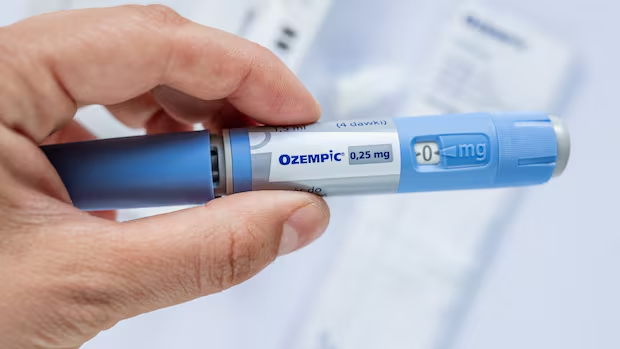
Listen to this article
Estimated 4 minutes
The audio version of this article is generated by text-to-speech, a technology based on artificial intelligence.
A new deal with major drugmakers, unveiled by U.S. President Donald Trump on Thursday, aims to expand coverage and cut prices for popular weight-loss drugs south of the border.
The deal with Eli Lilly and Novo Nordisk is set to expand Medicare coverage of Zepbound and Wegovy, two GLP-1 receptor agonist medications. GLP-1 agonists — which include semaglutide medications such as Wegovy and Ozempic — are a class of medications that mimic the GLP-1 hormone to help treat diabetes and obesity. They work by stimulating insulin release, slowing stomach emptying and decreasing appetite.
In the U.S., access has remained limited because of spotty insurance coverage and high cost, which can be upward of $500 US a month for higher doses. So how much could Trump’s announcement really cut costs? And will Canadians also benefit?
How will this affect U.S. prices?
Coverage of the drugs will expand starting next year, according to a senior Trump administration official, for people who have severe obesity and others who are overweight or obese and have serious health problems. Those who qualify will have a $50 US copay.
Lower prices also will be phased in for people without coverage through the administration’s TrumpRx program, which will allow people to buy drugs directly from manufacturers, starting in January. Administration officials say the average price of drugs sold on TrumpRx will start at around $350 US and then drop to $245 US over the next two years.
Those cuts might sound big, but Canadian pricing is already lower. With exchange rates factored in, prices for GLP-1 drugs are already “significantly less” here, said Dr. Nisha Gupta, an endocrinologist and postdoctoral fellow at McGill University.
Lower prices also will be phased in through the administration’s TrumpRx program, which will allow people to buy drugs directly from manufacturers, starting in January. (Allison Robbert-Pool/Getty Images)
What about Canada?
But prices in Canada could drop even further in the coming year — for reasons that have nothing to do with the U.S. deal.
Canadians currently pay anywhere from $300 to $500 per month for GLP-1 medications, including semaglutide brands such as Ozempic and Wegovy.
Here, Ozempic is approved to treat diabetes, while Wegovy is approved for weight loss. In January, Novo Nordisk — maker of both semaglutide brands — could effectively lose its market exclusivity in Canada, likely opening the door to generic versions, CBC News previously reported.
Mina Tadrous, an associate professor who evaluates pharmaceutical prices at the University of Toronto, has estimated that could bring the price down to under $100 from $400 for the same strength of semaglutide product.
But Gupta stresses that it’s unclear what type of generic version will become available, since semaglutide is given at different doses for different conditions, with a range of costs.
Will this make the drugs more accessible?
One thing is clear: GLP-1s are already immensely popular among the public, and costing provincial drug plans a fair amount.
Between 2017-18 and 2022-23, the total prescription drug spending for Canada’s public drug plans rose by more than $3 billion to a grand total of over $14 billion. Three antidiabetic medications — including Ozempic — ranked among the list of high-impact drugs, collectively contributing nearly two per cent to the growth in drug costs, and Ozempic alone has more than 200,000 country-wide beneficiaries, a federal report shows.
It’s possible cheaper prices could lead to more Canadians seeking prescriptions, including off-label uses in cases where these drugs are not covered by private insurance plans.
Gupta stressed that in Canada, semaglutide isn’t covered for many overweight patients, forcing certain people to pay out-of-pocket. (Though Wegovy is technically approved for obesity, patients must have at least one weight-related comorbidity such as hypertension, type 2 diabetes, or obstructive sleep apnea.)
“If semaglutide becomes generic, it’ll be something we can offer more easily to our patients who are overweight or [obese],” she said.
“Whether others will prescribe it for other things that are not approved, that’s very physician-dependent.”





